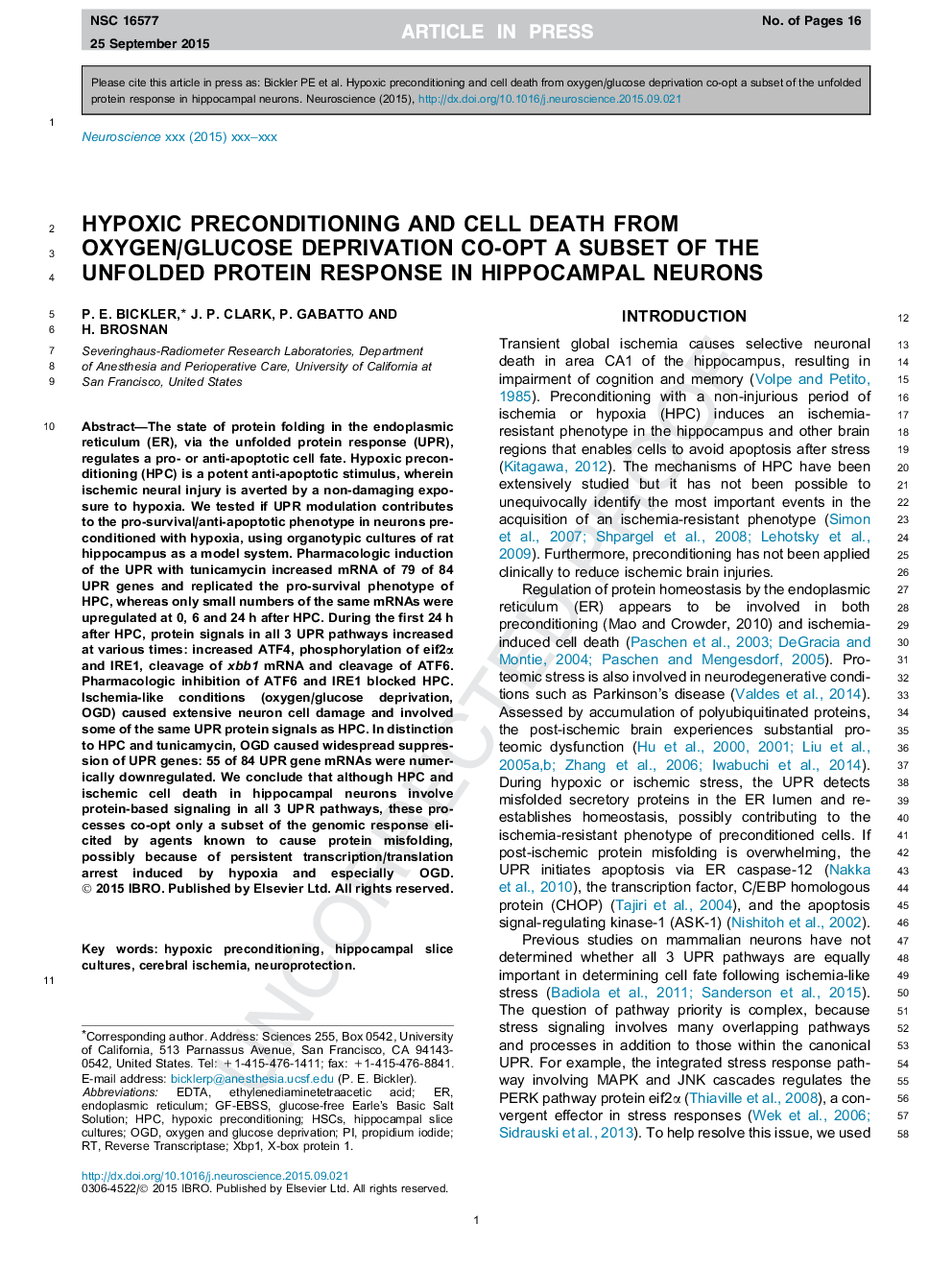| Article ID | Journal | Published Year | Pages | File Type |
|---|---|---|---|---|
| 6271575 | Neuroscience | 2015 | 16 Pages |
Abstract
The state of protein folding in the endoplasmic reticulum (ER), via the unfolded protein response (UPR), regulates a pro- or anti-apoptotic cell fate. Hypoxic preconditioning (HPC) is a potent anti-apoptotic stimulus, wherein ischemic neural injury is averted by a non-damaging exposure to hypoxia. We tested if UPR modulation contributes to the pro-survival/anti-apoptotic phenotype in neurons preconditioned with hypoxia, using organotypic cultures of rat hippocampus as a model system. Pharmacologic induction of the UPR with tunicamycin increased mRNA of 79 of 84 UPR genes and replicated the pro-survival phenotype of HPC, whereas only small numbers of the same mRNAs were upregulated at 0, 6 and 24 h after HPC. During the first 24 h after HPC, protein signals in all 3 UPR pathways increased at various times: increased ATF4, phosphorylation of eif2α and IRE1, cleavage of xbb1 mRNA and cleavage of ATF6. Pharmacologic inhibition of ATF6 and IRE1 blocked HPC. Ischemia-like conditions (oxygen/glucose deprivation, OGD) caused extensive neuron cell damage and involved some of the same UPR protein signals as HPC. In distinction to HPC and tunicamycin, OGD caused widespread suppression of UPR genes: 55 of 84 UPR gene mRNAs were numerically downregulated. We conclude that although HPC and ischemic cell death in hippocampal neurons involve protein-based signaling in all 3 UPR pathways, these processes co-opt only a subset of the genomic response elicited by agents known to cause protein misfolding, possibly because of persistent transcription/translation arrest induced by hypoxia and especially OGD.
Keywords
Related Topics
Life Sciences
Neuroscience
Neuroscience (General)
Authors
P.E. Bickler, J.P. Clark, P. Gabatto, H. Brosnan,
